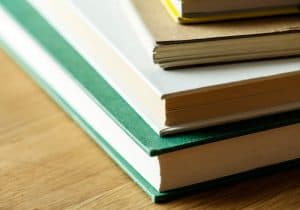
5 Traits of Highly Successful History Students
In our last part of our Successful Student series, Ms. Rachel Erwin discusses how to be a successful history student. Rachel is the Director of English College Test Prep, as well as a wildly popular college essay coach and English and history teacher. She makes sure that her students are on track at all times through both friendly and strict, approachable and structured teaching.
Below are her tips about how to become a star history student!
5 Traits of Highly Successful History Students
Spend Time Studying
As we’ll see in some of the other traits we discuss, history is not just about memorization. But let’s face it: memorization is a significant aspect of history. There is a lot of information you have to remember, over a long period of time. And if you fall behind, it can become hard to catch up.
So a highly successful history student will have good study habits, and that starts with creating a study schedule.
Cramming right before a test is not the answer! Instead, you want to set up a consistent schedule that you abide by every week. Be specific.
EX: I will study [on this day of the week] and [this other day of the week] from [this time] to [this time].
Then, have someone else hold you accountable. For example, maybe you post the commitment on your refrigerator and ask your parents to help ensure that you stick to the study schedule you outlined. Or maybe, you have a friend in the class, who will commit to following the same schedule, and you can both text each other to make sure you’re studying during those times or video chat and study together.
Remember, studying is NOT the same as “doing homework.” This is time specifically set aside to study your notes or textbook.
Be Organized
As a history student, you are usually given a variety of material in class. This might be lecture notes, PowerPoint slides, original documents to read, textbook chapters to outline, secondary sources to analyze, etc. So you need to keep everything organized, so that after you set up a study schedule, you can actually use that time effectively.
One tactic that I personally like is the flashcard method. As you learn different topics and events throughout the school year, you can use your study time to make flashcards that condense all the information that you’ve been given from different sources.
First of all, studies have shown just the act of writing the information down (like on a flashcard) already makes you more likely to remember it.
Second of all, it is an easy way to study. You are riding in the car on the way to the grocery store? You could be flipping through your flashcards. You have a spare 15 minutes before your next class starts? You could be flipping through your flashcards.
Make Connections
We’ve discussed studying and organization because memorization is a key component of doing well in history. However, it’s not the only component. Good history students will have the ability to make connections throughout different eras, movements, or groups.
How do the colonization efforts of the English in the 1500s and 1600s compare with the colonization efforts of the Spanish in the same time period?
How do the reform movements in the 1830s and 40s mirror the Progressive movement in the 1890s-1920s?
What are the similarities between George Washington’s Farewell Address and the Monroe Doctrine?
Use Historical Reasoning
Historical reasoning is generally discussed in terms of continuity & change, compare & contrast, and cause & effect. In the point above, we discussed “making connections.” That can be a form of historical reasoning as you compare or contrast similar movements in different time periods, for example.
However, a successful history student will also think about causation and continuity & change. History isn’t just facts! Think of it more like an evolving story. For example, when considering causation, you could determine that the Civil Rights Movement in the 1950s and 60s can be seen as the effect of the failures of Reconstruction in the 1860s and 1870s. Or when considering continuity & change, you can consider the ways in which the Constitution was both a continuation of the ideals of the Declaration of Independence and a break from those ideals.
Understanding this bigger picture will help you to have a deeper understanding of history and to do better on comprehensive tests or writing assignments.
Be a Good Reader

Many of your history classes will require you to read primary sources. Whether reviewing a speech like Martin Luther King Jr.’s “I Have a Dream,” a founding document like the Declaration of Independence, or a philosophical tract like John Locke’s Two Treatises of Government, you will have to become adept at reading these types of texts that often use archaic language and complicated syntax. You will also have to deal with primary sources in the forms of maps, graphs, tables, and political cartoons. Moreover, advanced history classes (like AP U.S. History or AP World History) will often ask you to read high level secondary sources, such as an historian’s academic take on an historical event.
The best way to get better at reading these types of documents is to practice! As you are reading create a word bank of unfamiliar vocabulary or references.
Teaching American History provides a great list of 50 primary sources to read when studying American History: https://teachingamericanhistory.org/collections/50-core-documents/
An extra benefit of becoming better at reading primary and secondary sources is that it will also make you a better writer! Thus, whether you are in an AP U.S. History class working on Document Based Questions or in a regular World History class and being asked to write a letter from the perspective of a British soldier in WWI, you’ll have a better understanding of how to do this if you are well read.
Next Steps
Doing well in history is all about the time that you put into it and the connections that you make. With all of the facts you need to remember, memorization is often not enough. You need to find ways in which one fact will trigger another, setting up a system for yourself. This means that you need to truly understand what you are memorizing in order to do more than just skim the surface.
Feeling lost, or just want a little individualized guidance? Our expert academic counselors are ready to help you find your direction. Contact us today to speak with our counselors and start your path to academic success!
Our School Support Tutoring Program is also specially designed to not only build concept mastery, but also ensure that students build the mindset that they need for high achievement in the classroom. Fill out the following inquiry form if you would like to learn more about our Tutoring Programs and how to get started.
See you soon!




